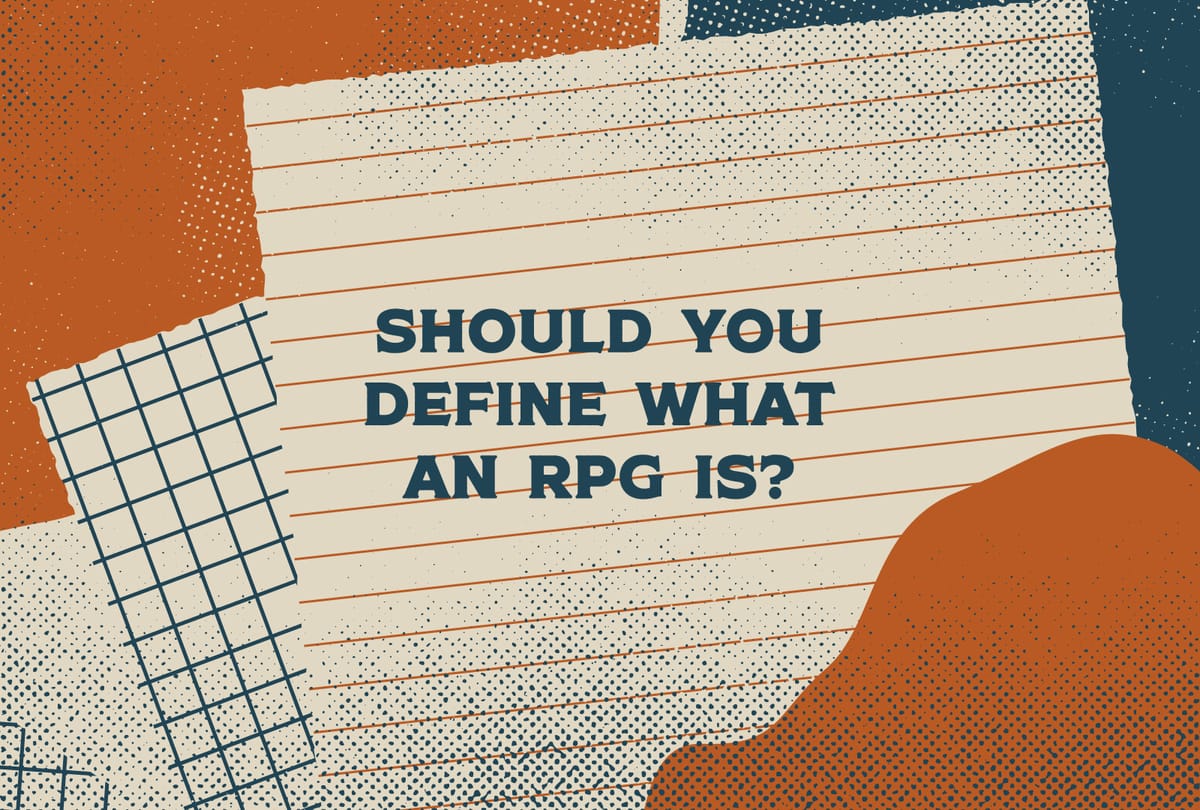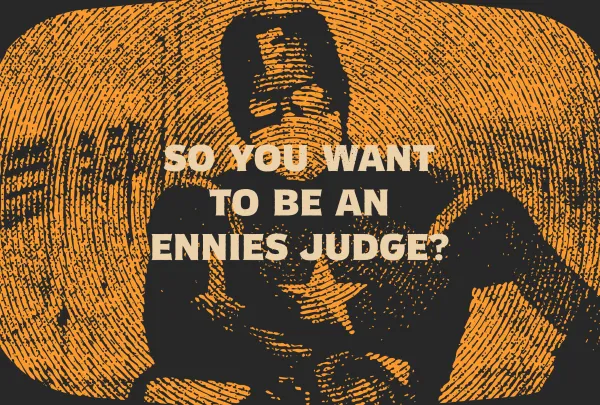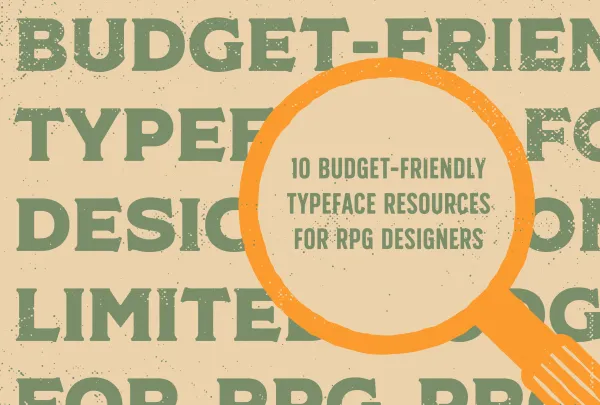What is an RPG? Doesn't matter.
Should designers explain what rpgs are in their games? My short answer is no. My long answer is complicated.

For as long as I can remember, the indie sphere has debated, "Should designers write a section explaining what an rpg is?" My short answer is no.
The odds the audience is unfamiliar with the medium is low, but more importantly, the concept of an rpg, its contours, its context, its systems of relation—the very schema of what "rpg" means is evolving so quickly, you'd be wrong to tackle it with only one paragraph, page, or book.
What is a roleplaying game?
A roleplaying game is a conversation between players unless it's a solo game like Thousand Year Old Vampire, Void 1680 AM, Eleventh Beast, Miru, Notorious, Last Tea Shop, Long Haul 1983, or Ironsworn. Those games are in dialogue with just you, themselves, or a larger conceptual idea.
Anyway, in roleplaying games, players take on the role of characters in a fictional world, except for when the players don't play characters—like in Microscope, Border Riding, Ex Novo, Grasping Nettles, and The Quiet Year. Also, sometimes they play elements or versions of the same character like in Everyone is John or Bluebeard's Bride. On further reflection, the "role" in roleplaying games is often fluid.
One thing that isn't fluid is that the worlds are always fictional. Not 100% fictional, of course. Some games are based on real places, people, and events, like Night Witches, Northfield, Ross Rifles, and The Price of Coal.
But what is 100% certain is that most rpgs have a table with 3-6 players and one "Game Master." Sometimes called a Dungeon Master, Referee, Keeper, Master of Ceremonies, Camp Counselor, Narrator, or something else. Whatever the title, most rpgs have a person in charge, unless it's one of the hundreds that don't, like Wanderhome, For the Queen, Be Seeing You, Insurgent, The Station, Cobwebs, and all those solo and duet games that don't have 3-6 players, like Badger + Coyote, Koriko: A Magical Year, HOME, Gun & Slinger, or Anyone Can Wear the Mask.
Now that I think about it, I should probably mention some rpgs have more than six players and don't feature a table. A few megagames and LARPs can host a dozen or more players. Sometimes as many as a hundred. And they regularly span across gymnasiums, college campuses, and continents. Barring those outliers, like Vampire the Masquerade, Model UN, Watch the Skies, and every funnel adventure for Mörk Borg and Mothership, most rpgs don't have that many players, and an overwhelming number of them use dice.
Except for the games that use cards, like Stewpot, His Majesty the Worm, Dialect, and The King is Dead. Not to mention the hundreds of games that use components like block towers, candles, stopwatches, and plain old paper, like Dread, Ten Candles, Shadowdark, and A Field Guide to Memory.
A few tabletop rpgs lean heavily on technology like texting in Alice is Missing, or are played virtually like This Discord has Ghosts In. It's also important to note that some games have dice but don't roll them very often. In Fiasco, for example, you pick from pre-rolled dice during setup. In Hounds, you stack them.
So, what do all of these games have in common? The answer is they all tell a story. That's what makes a roleplaying game a roleplaying game. Especially if we don't think about Lok, Deadball: Baseball with Dice, We Are But Worms, Equus Hero, How to Cry, or any setting-agnostic system.
The problem with defining roleplaying games as a category is that the definition applies to a startling number of not roleplaying games.
For a long time now, the only thing that made board games like Root, Gloomhaven, Descent, Werewolf, Betrayal, and even Pandemic (the non-legacy version) distinct from rpgs has been their rules and components—but those two boundaries have blurred with the rise of starter boxes and crunchier systems that borrow mechanics and components from boardgames.
The only thing we know for certain is that nobody debates whether Dungeons & Dragons is an rpg. That game along with its contemporaries like Call of Cthulhu, Runequest, Traveller, and Tunnels & Trolls can at least be confident they're the prototype—especially if we don't look too closely at Kriegsspiel, folk games like Mafia, improvisational theater, or that art exhibit by Yoko Ono.
So what do we write instead?
My opinion is that most rpgs are better off skipping ahead. Rather than explain what roleplaying games are, trust your audience to know the category, or simply explain the game on its own terms.
What's more important is that the person reading the book* understands how to play with it. Whether or not they call the thing they do with it, "roleplaying" isn't as important. The play is the thing, and the genre will expand to include you if it can keep up.
*Assuming your rpg is a physical book, which we won't get into.
Explorers Design is a production of Clayton Notestine. If you liked this article, please consider liking, sharing, and subscribing. Members who pay just $5/month also get unlimited access to templates, tools, and resources.




